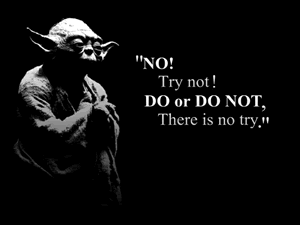 Research has proven Henry Ford correct when he said, “whether you think you can or that you can’t, you are usually right”. Helping young people develop a positive growth oriented mindset where they can improve over time and overcome setbacks powerfully predicts success. This shifts them from “can’t do” to “can do”. Here are some ways that parents develop this attitude in children.
Research has proven Henry Ford correct when he said, “whether you think you can or that you can’t, you are usually right”. Helping young people develop a positive growth oriented mindset where they can improve over time and overcome setbacks powerfully predicts success. This shifts them from “can’t do” to “can do”. Here are some ways that parents develop this attitude in children.
Have a policy of “we fall down 7 times but we get up 8”.We all have set backs. There are times when we all have to pick ourselves up, dust ourselves off and start again. Most of us are experts in this even if we’ve forgotten it because this is the way we learned to walk. Sucking at something the first few times you do it is the first step to getting good at it.
Use “I noticed” feedback Parents can use “I noticed” feedback for positive and negative behaviours. The number of comments made to kids that begin with the phrase “I noticed”, shape behaviour powerfully. For example, “I noticed you like to draw”, “I noticed you are really trying hard to”, “I noticed you’re reading a good book”. Believe me, they will notice that you have noticed! Parents can use this to calmly draw attention to negative behaviours. For example, “I notice you are up when you are supposed to be asleep” or “I notice that you are feeling up set right now”. This gives kids a chance to explain their actions or comply with parents’ wishes.
Praise effort more than ability Tell your kids that they are geniuses but they don’t know it yet. It’s good to know that your parents think you are wonderful. Then focus most of your comments on effort. For example,“ You really worked hard at that well done!” “I noticed you really tried your best at that, I’m impressed” or “Wow, your practice seems to be really paying off”.
Mistakes are opportunities to learn. If a child thinks they didn’t do well at something because they lack intelligence, they give up. When they can see they are on a pathway of improvement they persist. Mistakes are an essential part of learning. The physicist Niels Bohr defines an expert as “a person who has made all the mistakes that can be made in a very narrow field. ”Creating something new involves make a lot of mistakes. One example is the bestselling Dyson vacuum cleaner. The inventor made 5,127 prototypes of the vacuum before getting it right. “There were 5,126 failures. But I learned from each one. That’s how I came up with a solution. So I don’t mind failure”. Parents can help children to learn that when you make a mistake all it means is that you haven’t learned how to get it right yet.
Dealing with set backs No one really enjoys making mistakes. If we don’t learn from our mistakes we are destined to repeat them. It is hard to keep your enthusiasm up when you’ve not been selected for a dance team or a drama part or a sport steam or failed a test at school. Parents can help kids by helping them to analyse mistakes. Some questions used to review a setback are: Ok so you didn’t do as well as you would have liked. Let’s see if we can learn from this? What parts of it did you do well What parts of it didn’t go as well as you hoped? How much work would be involved in getting better at those parts? Would you change the way you prepared for it next time? In what ways? I know you can do better at this if you want to. Do you want to try again? How can I help you with this? If they decide not to have another go say, “Ok but don’t let your decision trick you into believing you couldn’t get better if you tried.
”Turn losses into tournaments You may have already done this as a kid. After losing at a game, you may have said, “Ok, best out of three is the champion”. If you didn’t win that tournament perhaps you may have said,“ Ok, best out of five is ruler of the universe”. Teach your kids that there is no loss; there is always a chance to have another go.
There is no try! As the Jedi master puts it, do or do not, there is no try. Parents shouldn’t accept “try” either. When kids say they are going to try ask them, ”does that mean you are going to do it or not?”
Focus on the way we do things rather than the result Successful sports teams play the game the same way regardless of the score in the game. Focusing on the result causes people to panicor freeze up. Parents’ comments can cause ashift in their child’s awareness. Instead of commenting on the result, find something you like and notice it. For example, “you sang the first few bars of that song beautifully, it’s coming together”. Avoid the temptation to then add suggestions of ways to improve.
Talk about your role models Young people today seem to lack positive role models. The media seems determined to serve kids up role models of testosterone fueled bozos or ditzy socialite women. The idea that you can partly shape your life on someone who you admire is alien to them. Talk about the people you admired as a kid. Explain why they have been important. Talk about the everyday heroes who have inspired you.
How to avoid a boring life If you get scared of getting things wrong, you won’t try new things. If you don’t try new things you become bored and boring. Life becomes mundane, dull and routine. Parents can arrange to do things with their kids that they have never done before. Quirky adventures don’t have to take a lot of time or money but they do take some thought and planning. Plan to have your child (and yourself)go somewhere they’ve never been before or do something they have never done before. Don’t settle for anything less than an interesting life.
Think of a time when it was hard We’ve all done things that at first seemed impossible. We’ve all struggled at times in our lives. Share some of those stories with your kids so they know that you have shared the same doubts as they have. Talk about times when you could have given up but you didn’t.
How to talk with them about successes. Kids want their parents’ approval. The way you provide praise will shape their future efforts. Let them know you are proud of them.
Try to include in your delight at their success a comment on the effort that went into their success. For example, “I am so proud of you for getting that A, I know how much work you put into that project.”“ You were great today. All that practice has really paid off. I’m proud of you”. “Wow when you put your mind towards something you really work hard and get it. That’s great”
Be exuberant If you become the proud parent, kids will tell you that you are embarrassing them. Don’t believe them. Maybe don’t do it in front of other people but when you get them in private, let them know that you love them and think they are fantastic. They may pretend to you that they hate it but they all secretly lap it up.
Be the antidote to the drip feed of despair Your kids will become upset at setbacks, will label themselves as “no good” or stupid if they don’t get a good mark and compare themselves negatively to others. It is so tempting for parents to try to soothe kids out of this or even provide a salutary lesson, “well if you’d tried harder you would have done better”. Don’t do this! Be determined to stay focused on effort and improvement. “I’m sorry you didn’t do as well as you hoped and if you want to have another go, let’s work out a way of getting better at it”. At first changing your parenting language might feel a bit weird. Focusing on noticing, commenting on effort and emphasising the power of having a go are the most powerful ways parents can set kids up for success.
Copyright Andrew Fuller
www.andrewfuller.com.au


